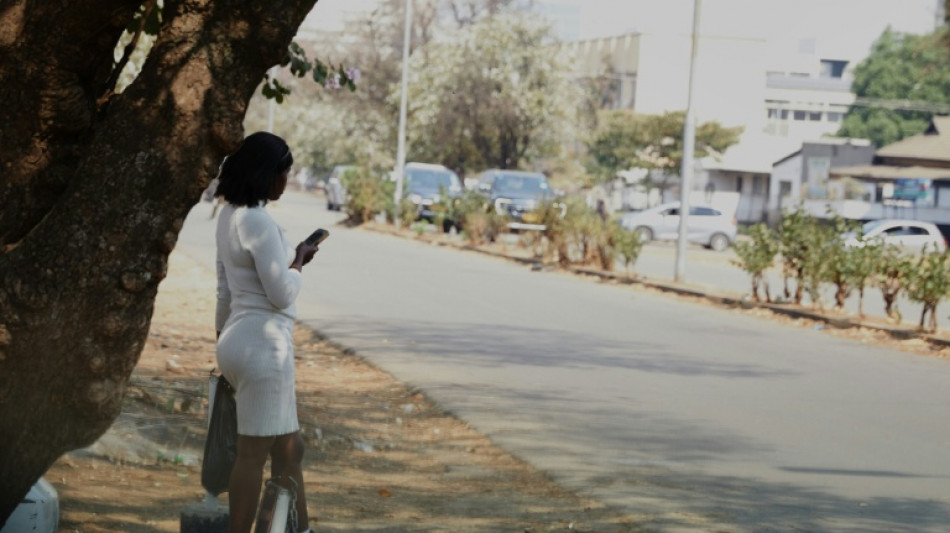
-
 Jamie Melham on Half Yours only second woman to win Melbourne Cup
Jamie Melham on Half Yours only second woman to win Melbourne Cup
-
Myanmar scam hub sweep triggers fraudster recruitment rush
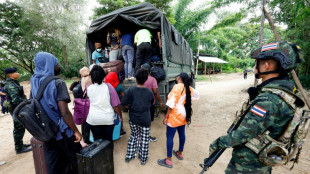
-
 Biggest emitter, record renewables: China's climate scorecard
Biggest emitter, record renewables: China's climate scorecard
-
Floods strand people on roofs as typhoon pounds Philippines
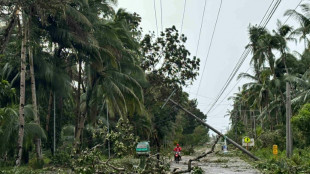
-
 Asian markets swing as trades eye tech rally, US rate outlook
Asian markets swing as trades eye tech rally, US rate outlook
-
South Korea to triple AI spending, boost defence budget
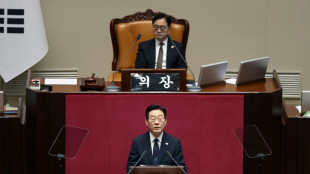
-
 Trott to leave as Afghanistan coach after T20 World Cup
Trott to leave as Afghanistan coach after T20 World Cup
-
Late queen's fashion to go on show at Buckingham Palace
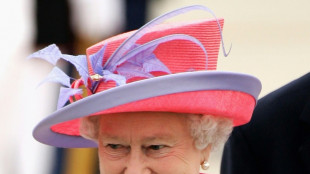
-
 In Morocco, exiled Afghan women footballers find hope on the pitch
In Morocco, exiled Afghan women footballers find hope on the pitch
-
EU scrambles to seal climate deal ahead of COP30

-
 New Yorkers expected to pick leftist Mamdani in stunning election
New Yorkers expected to pick leftist Mamdani in stunning election
-
Pining for Pinochet: how crime fanned nostalgia for Chile's dictator
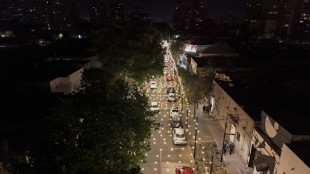
-
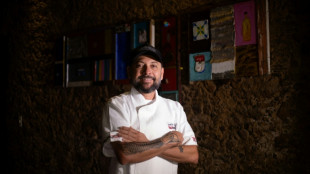 Why an Amazon chef said no to a vegan dinner for Prince William event
Why an Amazon chef said no to a vegan dinner for Prince William event
-
Cement maker Lafarge on trial in France on charges of funding jihadists
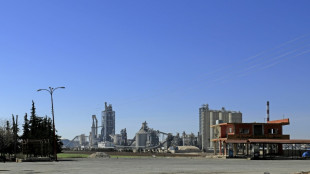
-
 Worker dies after medieval tower partly collapses in Rome
Worker dies after medieval tower partly collapses in Rome
-
Run-machine Labuschagne in form of his life ahead of Ashes

-
 Prince William plays football, volleyball in Rio on climate trip
Prince William plays football, volleyball in Rio on climate trip
-
Jamaicans mobilize aid in aftermath of Melissa's wreckage
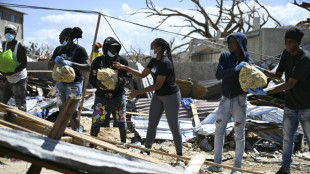
-
 Starbucks cedes China control to Boyu Capital
Starbucks cedes China control to Boyu Capital
-
Worker rescued after medieval tower partly collapses in Rome

-
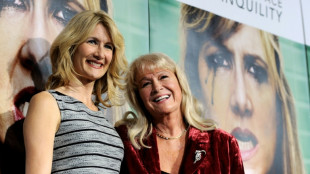 'Wild at Heart' actress Diane Ladd dies at 89
'Wild at Heart' actress Diane Ladd dies at 89
-
Xhaka lifts Sunderland into fourth after Everton draw

-
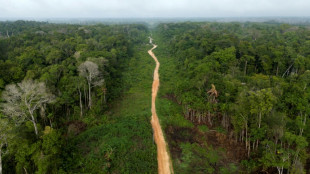 Brazil records biggest annual fall in emissions in 15 years: report
Brazil records biggest annual fall in emissions in 15 years: report
-
Victor Conte, mastermind of BALCO doping scandal, dead at 75: company

-
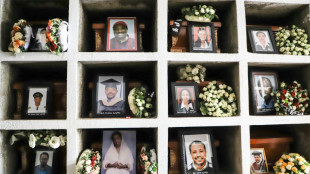 Trial opens in 1st US civil case on 2019 Boeing MAX crash
Trial opens in 1st US civil case on 2019 Boeing MAX crash
-
Mixed day for global stocks as market digests latest AI deals

-
 Barrett brothers out of All Blacks' clash with Scotland
Barrett brothers out of All Blacks' clash with Scotland
-
Medieval tower partially collapses in Rome, trapping worker

-
 Arsenal's Arteta says injured Gyokeres out of Slavia Prague tie
Arsenal's Arteta says injured Gyokeres out of Slavia Prague tie
-
Alonso says 'quality' Wirtz helped get him Real Madrid job

-
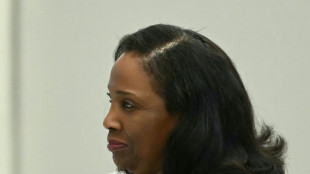 US Fed's Cook warns inflation to stay 'elevated' next year
US Fed's Cook warns inflation to stay 'elevated' next year
-
Blue heaven: huge crowds salute Los Angeles Dodgers in victory parade

-
 Dutch centrist Jetten clinches election win: final tally
Dutch centrist Jetten clinches election win: final tally
-
Mamdani extends olive branch to anxious NY business community
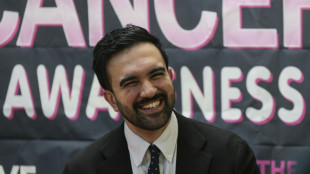
-
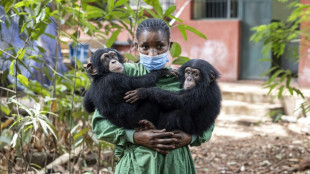 Sierra Leone chimpanzee sanctuary reopens after deforestation protest
Sierra Leone chimpanzee sanctuary reopens after deforestation protest
-
Shein bans sex dolls after France outrage over 'childlike' ones

-
 England full-back Steward doubtful for Autumn rugby clash with Fiji
England full-back Steward doubtful for Autumn rugby clash with Fiji
-
Bayern know how to 'hurt' PSG, says Neuer

-
 Rybakina downs Swiatek to reach WTA Finals last four
Rybakina downs Swiatek to reach WTA Finals last four
-
Ex-France international Ben Yedder to stand trial on rape charges

-
 Djokovic confirmed for ATP Finals, says Italian federation boss
Djokovic confirmed for ATP Finals, says Italian federation boss
-
Trent should be remembered for 'great' Liverpool moments, says Slot

-
 Stock markets diverge despite boost from AI deals
Stock markets diverge despite boost from AI deals
-
Prince William awed by Rio on climate-focused trip to Brazil
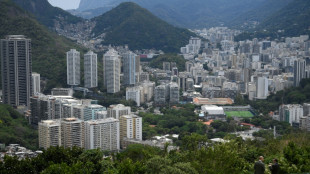
-
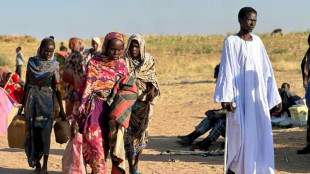 Violence in Sudan's El-Fasher could be war crimes, says top court
Violence in Sudan's El-Fasher could be war crimes, says top court
-
Rybakina downs Swiatek in WTA Finals

-
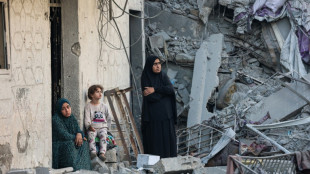 Turkey, Muslim allies say Palestinian self-rule key to Gaza future
Turkey, Muslim allies say Palestinian self-rule key to Gaza future
-
Tens of thousands shelter as typhoon slams into Philippines
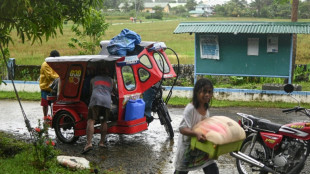
-
 Stock markets rise as tech sector buoyed by fresh AI deal
Stock markets rise as tech sector buoyed by fresh AI deal
-
Vitinha says PSG-Bayern Champions League clash will show who's 'best'


US cuts leave Zimbabwe sex workers scrambling for alternatives
In a cramped room with blistered walls on the edge of Harare, three sex workers sat pressed together on a frayed mattress spread across bare concrete.
This was the work station for the women, who say their trade turned perilous after US President Donald Trump abruptly cut foreign health aid earlier this year.
One of them, Sharon Mukakanhanga, reached into her bag and pulled out a pair of baby socks she used when there was nothing else between her and risk.
"These little socks served as condoms when I became so desperate after the American government withdrew its support from my all-time go-to safe haven," the 43-year-old told AFP, referring to her preferred clinic.
Mukakanhanga is among thousands of sex workers in Zimbabwe who have struggled to access HIV prevention tools since the US cuts gutted centres that once provided free condoms, antiretrovirals and basic care.
For nearly two decades, the US programmes including PEPFAR, the world's largest HIV initiative, formed a critical safety net for Zimbabwe's fragile health system.
The first half of 2025 has seen 5,932 AIDS-related deaths, a rise from 5,712 in the same period last year, according to official government figures.
- 'Lost my mind' -
The impact of the withdrawals was immediate, said 47-year-old HIV-positive sex worker Cecilia Ruzvidzo.
"It was a very difficult period. I literally lost my mind," said the mother of four who has been in the trade for nearly two decades.
She recalled leaving her most recent visit to the clinic with only 10 days' worth of antiretrovirals.
"I could not get condoms, which are a necessity for my work. I was at risk of contracting more infections. My clients were also exposed," she said quickly.
With US-funded facilities shuttered or empty, the few remaining providers say they are buckling under the pressure.
Medical charity Doctors Without Borders (MSF), which operates independently of US government funding, said its clinics in Harare suburbs like Epworth and Mbare were stretched thin.
"They don't know where to go. They don't know where to seek services," said project lead Charlotte Pignon, referring to patients and especially sex workers.
While she did not directly link the rising deaths to the funding cuts, she said the impact of the withdrawal could not be ignored.
"It is difficult to know all the factors that are impacting those numbers but it's impossible to say that it’s not impacted by the US cuts either," she said.
- 'Serious disruption' -
The scale of the fallout was still coming into focus, said Wonder Mufunda, chief executive of the Harare-headquartered think-tank Centre for Humanitarian Analytics (CHA).
Mufunda said US support had previously amounted to about $522 million, with roughly $90 million directed to HIV programmes.
"You wake up and you have lost such funding, there were serious disruptions," he said, warning that deaths could rise.
"It's quite a big blow we are talking about," he told AFP.
Beyond overstretched clinics, Zimbabwe's economic freefall is pushing more people into sex work with an estimated 40,500 women already engaged in sex work nationwide, according to CHA.
Competition had eroded the power to insist on safer sex, said 20-year-old Cleopatra Katsande. Some workers were charging as little as 50 US cents per client, far less than the cost of a box of condoms, she said.
For veteran Ruzvidzo, there was no real choice.
"We knew it wasn't safe," she said of using baby socks as condoms. "But I had to feed my children."
The clients did not seem to mind, she said. "When it comes to this moment, men don't think straight."
R.Halabi--SF-PST
